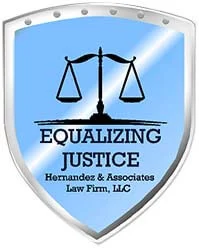CAN YOU SUPPRESS THE PROSECUTION’S EVIDENCE IN YOUR CASE?
Prosecutors oftentimes don’t bring criminal charges unless they’re confident that they have a good chance of obtaining a conviction. That can be intimidating for those who have been accused of a criminal offense. After all, in many instances it may seem like the evidence is stacked against the defendant, leaving him or her with no way out. This means that the accused individual could be subjected to significant penalties, including prison time, fines, a lingering criminal record, and damage to his or her reputation.
You shouldn’t fold under the weight of the prosecution’s evidence if you’re facing criminal charges. Instead, you need to carefully assess the situation to see if there’s a way for you to take control of the case and poke holes in the prosecution’s arguments.
SUPPRESSING EVIDENCE
One of the best ways to attack the prosecution’s case is to try to suppress the evidence that it intends to use against you. Suppression simply means that you successfully argue that the evidence in question is unreliable or illegally obtained and the court therefore orders that the evidence can’t be used against you.
Suppression can occur in a number of ways. Here are just some of them:
- Illegal search and seizure: Law enforcement has to follow the law when it collects evidence, which means that they can’t stop you without justification and then seize evidence. Yet, this is seen all the time in the context of traffic stops. Police officers stop a vehicle on nothing more than a hunch, then search the vehicle and find narcotics. Since the initial stop in this instance is illegal, any subsequently gathered evidence is considered tainted and therefore inadmissible at trial. This is known as the fruit of the poisonous tree
- Chain of custody errors: Evidence collected by the police has to be carefully handled so that its integrity and reliability can’t be drawn into question. Yet, police officers taint evidence all the time through poor collection and maintenance practices. You might be able to point out these mishandlings and demonstrate how they draw the reliability of the evidence into question. This can diminish the weight given to the evidence or lead to the evidence being excluded altogether.
- Missed depositions: Before you go to trial, it’s a good idea to depose the prosecution’s witnesses. Here, you take sworn testimony outside of court and prior to trial to determine what the witnesses know and to lock them into their testimony. In some instances, though, the prosecution’s witnesses fail to appear at scheduled depositions, even when they’re subpoenaed to appear. If this happens on multiple occasions, then you can request that the witness be barred from testifying against you. After all, allowing the prosecution to use that witness would be unfair at that point.
Keep in mind that these are just some of the options at your disposal when it comes to trying to suppress evidence. You might be able to make other arguments that are more fitting to your situation, so be sure to consult with your attorney on those.
DON’T LET OVERLY AGGRESSIVE PROSECUTORS CONTROL YOUR FUTURE
A lot of individuals who have been accused of a crime are so overwhelmed by the prosecution’s evidence that they submit to a plea agreement. While this isn’t always a bad thing, you should hesitate before taking any sort of action that puts your future in jeopardy. Instead, you need to carefully look at the facts of your case and consider whether you have strong criminal defense options at your disposal that you can exploit to protect your future.

